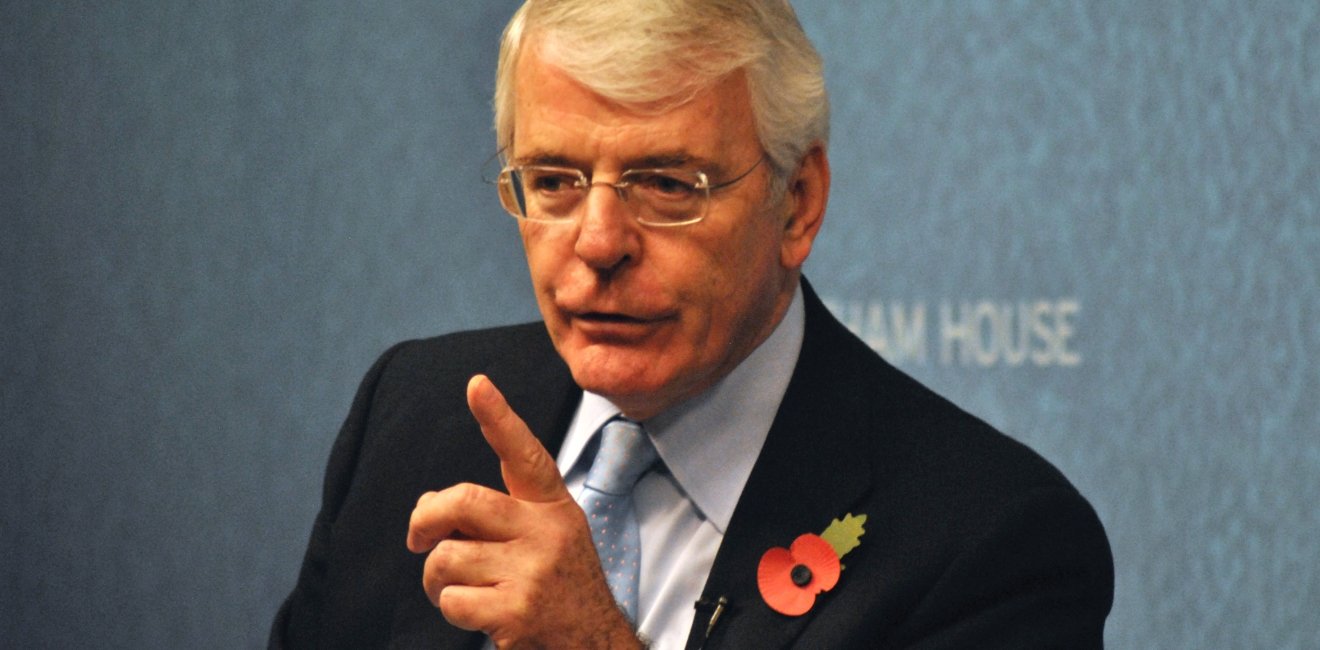'At the very heart of Europe': New Evidence on John Major's Foreign Policy
Stephan Kieninger uses newly uncovered documents to explore former British Prime Minister John Major's unique style of statecraft.

A blog of the History and Public Policy Program
Stephan Kieninger uses newly uncovered documents to explore former British Prime Minister John Major's unique style of statecraft.

The British National Archives in Kew is a special place.
In 2013, it began its move towards releasing records when they reach 20 years old, instead of 30 years. Since then, two further years’ worth of government records are being transferred to the archives year until 2022, when the archives will receive the records from 2001 and 2002.
Key sources of Britain’s post-Cold War foreign policy are now accessible. In December 2018, the archive released files from the Prime Minister’s Office and Cabinet Office, predominantly covering the year of 1994. We will soon have a far better understanding of Prime Minister John Major’s statecraft and Britain’s role in the transformation of the international system.[1] For many reasons, Major’s policy towards the European Community is a promising and highly-relevant field for further research.
John Major did not share Margaret Thatcher’s view that all of Britain’s foreign policy problems came from continental Europe. Major considered united Germany too powerful a player to indulge in emotions left over from World War II. Major was eager to rebuild the relationship with German Chancellor Helmut Kohl, which Foreign Secretary Douglas Hurd had kept alive in the last part of Thatcher’s premiership.[2]
In March 1991, in an address at before the Konrad Adenauer Foundation, Major emphasized that he wanted his country ‘where it belongs, at the very heart of Europe’.[3] Thus, Major echoed the views Kohl had expressed during their talks in Bonn a month earlier when Kohl reiterated that ‘he very much wanted Britain to be together with Germany and France at the heart of the EC. It was psychologically wrong for Germany to be too prominent in Europe. That was why he continued to let France get out ahead.’ Kohl continued, ‘Mrs. Thatcher had never really understood his approach to Europe. But he and the Prime Minister were more similar and he very much wanted the two of them to work closely together.’[4]
John Major’s papers at the National Archives in Kew reveal the emergence of his foreign policy. The evidence suggests that although he did not wish to change the fundamentals of Britain’s European Union Policy, he wanted to be active in making a success of Britain’s EU membership. His approach and his presentation of foreign policy differed from Margaret Thatcher’s style: Major was eager to start his relationship with Helmut Kohl by searching for common interests. Thatcher had often warned against ‘a federal European superstate’ that would be dominated by Germany. Major saw things differently.
During the February 1991 meeting with Helmut Kohl, he pointed out that ‘there was [sic] some areas where Britain and Germany agreed’ with regards to their approaches on European Community issues and the Economic Monetary Union (EMU) in particular. ‘Both wanted an anti-inflationary outcome. Both thought there had to be a convergence of economic matters before EMU could be achieved.’ At the same time, Major highlighted that ‘basically we needed time. Time to prepare opinion in the UK and time to allow the more towards EMU to be gradual’.[5]
The records of the Major and Kohl meetings indicate that Major sought to end the confrontational style in meetings with EU partners, although he always saw limits to integration and had to be cautious to restore party unity after the departure of Thatcher. The files depict Major’s participation in the discussions leading to the signing of the Maastricht Treaty in 1991 and his diplomacy to secure concessions to satisfy the Eurosceptics in his party. In 1992, Major managed to get the Maastricht Treaty through Parliament in the face of potential Conservative rebellions. However, the Danish people rejected the Treaty in a referendum and 91 Conservative MPs signed an Early Day Motion in the Commons, in June 1992, asking Major to now abandon the Treaty.
Major wanted to carry on, expecting correctly that the Danes would later reverse their decision. Major and Kohl discussed these issues time and again. Major’s proposal for a solution was ‘to see if we could put more flesh onto the notions of subsidiarity. If we could come up with some detailed provisions, they would not involve amending the Treaty but they could help the Danes.’[6]
The Major papers have particular value in that they include in-depth discussions over the future of Europe and its place in the world. Time and again, Helmut Kohl and John Major had time on their own without a pre-scheduled agenda. Thus, both were able to have wide-ranging tour d’horizons over issues of international change and Europe’s transformation.
The records underpin Helmut Kohl’s keen sense of history and his determinedness to turn European integration into an irreversible process. In November 1991, for instance, before the Maastricht Summit, Kohl reiterated that ‘he believed we had a unique opportunity to make progress on German unity and on European unity. If we did not manage to do it now, we would not do it for years to come. We had to fix certain principles irreversibly. The technicalities could be achieved step-by-step, but the principles had to be fixed now. […] If we did not seize the opportunities now before us, it would be another 20 to 30 years before we had another opportunity. In the meantime we would have a very different, and not desirable, type of Europe.’[7]
[1] For two new accounts, see Kevin Hickson and Ben Williams, John Major: An Unsuccessful Prime Minister? Reappraising John Major (London: Biteback Publishing, 2017), and Kristina Spohr, Post Wall: Rebuilding the World after 1989 (London: HarperCollins, forthcoming).
[2] See Percy Cradock, In Pursuit of British Interests: Reflections on Foreign Policy Under Margaret Thatcher and John Major (London: John Murray Publishers, 1997); Mark Stuart and Douglas Hurd, The Public Servant: An Authorised Biography (London: Mainstream Publishing, 1998); John Major, The Autobiography (London: HarperCollins 1999); and Alan Clark, The Last Diaries: In and Out of the Wilderness (London: Weidenfeld & Nicholson, 2002).
[3] For the context, see John Major, The Autobiography, 268–269.
[4] Memorandum of Conversation between John Major and Helmut Kohl, 11 February 1991, in: TNA, PREM 10/3352.
[5] Memorandum of Conversation between John Major and Helmut Kohl, 11 February 1991, in: TNA, PREM 10/3352.
[6] Memorandum of Conversation between John Major and Helmut Kohl, 5 June 1992, in: TNA, PREM 19/4166.
[7] Memorandum of Conversation between John Major and Helmut Kohl, 10 November 1991, in: TNA, PREM 19/3353.


A leader in making key foreign policy records accessible and fostering informed scholarship, analysis, and discussion on international affairs, past and present. Read more


The Cold War International History Project supports the full and prompt release of historical materials by governments on all sides of the Cold War. Read more



